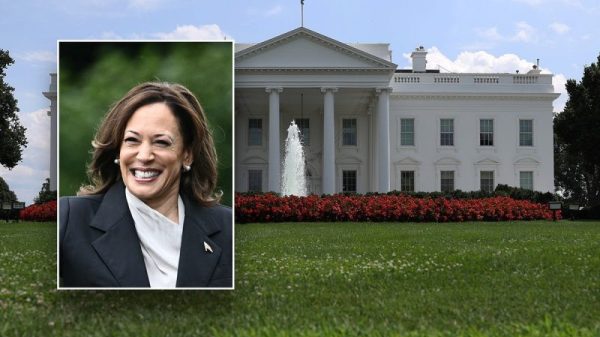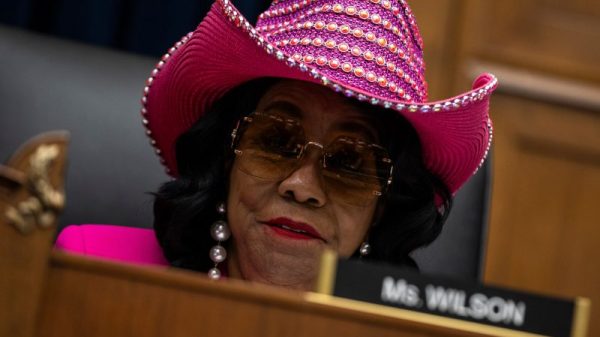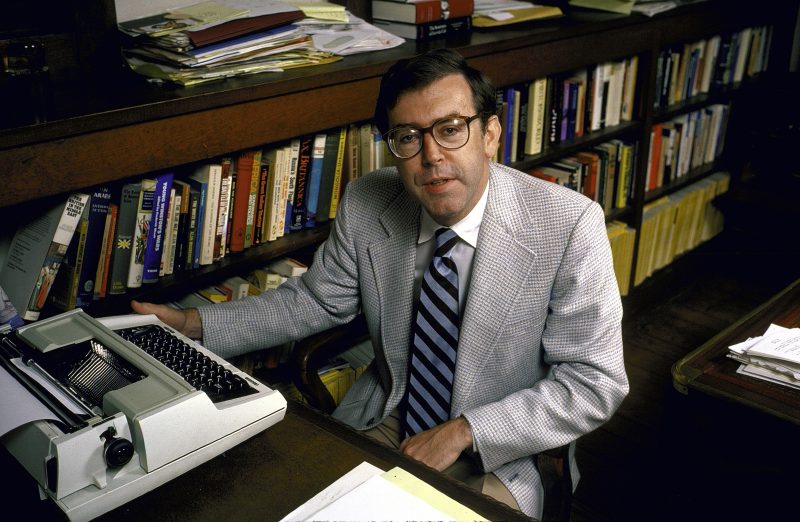Kevin P. Phillips, a political analyst and prolific author whose 1969 book “The Emerging Republican Majority” was read as an electoral blueprint for the GOP’s “Southern Strategy” to build a coalition of Whites who voted largely on social and racial issues, died Oct. 9 at a hospice center near his home in Naples, Fla. He was 82.
The cause was Alzheimer’s disease, said his son, Alec Phillips. Mr. Phillips lived in Bethesda, Md., for many years before moving to Florida in 2017.
A voting patterns guru who had been studying and drawing political maps since childhood, Mr. Phillips was working as a legislative aide to Rep. Paul A. Fino (R-N.Y.) in the 1960s when he concluded that electoral trends showed that racial tension and social problems were causing poor Whites in the South and voters from different ethnic backgrounds in Northern cities to shun the Democratic Party.
He began compiling his research into what became “The Emerging Republican Majority.” Early drafts made their way to Richard M. Nixon’s presidential campaign advisers.
“I got in to see campaign manager John Mitchell and basically said, ‘I’ve got a book which I think outlines what’s going to happen in American presidential politics and sort of where to put your chips and what’s happening,’” he recalled in a C-SPAN interview.
Nixon’s people were impressed.
He had a “house-by-house knowledge of voting sensitivities,” campaign strategist Leonard Garment said. Patrick J. Buchanan, another key Nixon adviser, wrote in his 2014 book about Nixon’s campaign that Mr. Phillips “knew more about ethnic blocs and voting patterns of the 435 congressional districts right down to the country level than anyone in our campaign.”
Nixon hired him. In campaign memos, Mr. Phillips suggested campaign tactics connected to the electoral trends described in his manuscript, coining the term “Sun Belt” to describe the Southern and Southwest states that were becoming prime targets for Republicans because of social unrest.
“The fulcrum of re-alignment is the law and order/Negro socio-economic revolution syndrome, and [Nixon] should continue to emphasize crime, decentralization of federal social programing, and law and order,” Mr. Phillips wrote in a memo, adding that radio ads should feature movie star John Wayne emphasizing that Nixon is just “folks” who will end urban riots.
The idea, in essence, was to co-opt White Democrats by associating African Americans with the Democratic Party.
“The more Negros who register as Democrats in the South, the sooner the Negrophobe whites will quit the Democrats and become Republicans,” Mr. Phillips told the New York Times. “That’s where the votes are.”
Mr. Phillips maintained that he was just describing human behavior. “The whole secret of politics,” he opined to author Garry Wills for his book about Nixon, is “knowing who hates who.”
In revealing the data and theses Nixon drew upon to beat Democratic nominee Hubert H. Humphrey, “The Emerging Republican Majority” could “easily become a Republican bible,” syndicated columnist Clayton W. Fritchey wrote, calling the book “an original and absorbing inquiry into the volatile politics of contemporary America.”
Republicans were divided over its findings. Some argued that abandoning entire regions of voting blocs was shortsighted and that such a blueprint should be rejected. Others contended that the GOP did not need or want urban voters. Mr. Phillips argued that his book was not an electoral scheme.
“The book was not a blueprint of the GOP’s ‘Southern Strategy’ as some claimed, but a detailed, historically framed analysis of regional and cultural shifts that had already been in motion for a quarter century,” he wrote in the preface to a 2015 edition of his book. “It contained no instructions.”
Still, establishment conservatives such as William F. Buckley Jr. shunned him. He, in turn, began to shun them.
After leaving the Nixon administration in 1970, Mr. Phillips published newsletters covering politics and business affairs. He never worked in politics again, viewing himself as an independent populist who abhorred “country club” Republicans and the rise of evangelical conservatives.
He wrote 14 other books, including “The Politics of Rich and Poor: Wealth and the American Electorate in the Reagan Aftermath” (1990), in which he lamented the income gap caused by Reagan-era policies; “Boiling Point: Democrats, Republicans, and the Decline of Middle Class Prosperity” (1993), about the disappearing middle class; and “American Dynasty: Aristocracy, Fortune, and the Politics of Deceit in the House of Bush” (2004), accusing the Bush family of employing financial and social empires for personal and political gain.
His 2008 book “Bad Money: Reckless Finance, Failed Politics, and the Global Crisis of American Capitalism,” was heavily discussed in political and media circles. It argues, the Los Angeles Times said in its review, that “the emergence of hedge funds and ever-more exotic bundles of financial derivatives amounts to a ‘financialization’ of the American economy that has facilitated a ruinous expansion of private, as well as public, debt.”
“When you take into account how often he’s been right in the past,” the review continues, his new volume “in his continuing commentary on the American condition becomes positively alarming.”
Kevin Price Phillips was born in Manhattan on Nov. 30, 1940, and grew up in the middle-class Parkchester neighborhood of the Bronx. His father was chief executive of the New York State Liquor Authority, and his mother was a homemaker.
As a child, he became aware of ethnic and religious divides in his neighborhood and even in his own home. His mother was Protestant, his father Catholic. Mr. Phillips later joked that “my religion was reading the Sunday papers.”
While his friends compiled baseball statistics, Mr. Phillips’s boyhood hobby was studying demographic information and drawing voting maps. His parents enrolled him at the Bronx High School of Science, where he wasn’t much interested in the science but nonetheless became a National Merit scholar.
“I guess my after school study of ethnic political behavior was a natural progression from taking zoology in the classroom,” he told the New York Times.
In 1961, Mr. Phillips received a bachelor’s degree in political science from Colgate University in Hamilton, N.Y. He spent his junior year studying economic history and geography at the University of Edinburgh in Scotland. He graduated from Harvard Law School in 1964.
While working for candidate Nixon, Mr. Phillips was married in 1968 to Martha Henderson, an aide to then-Rep. Melvin R. Laird (R-Wis.), whom President Nixon soon named secretary of defense.
In addition to his son, survivors include his wife; two other children, Betsy Khamdiev and Andrew Phillips; a brother; and seven grandchildren.
In a 1970 profile of Mr. Phillips in the New York Times, his wife revealed what drew her to him. In many ways, she was describing Mr. Phillips, the author and political commentator.
“He’s quite witty, you know, in a wry, caustic, cynical but pleasant way,” she said.





























